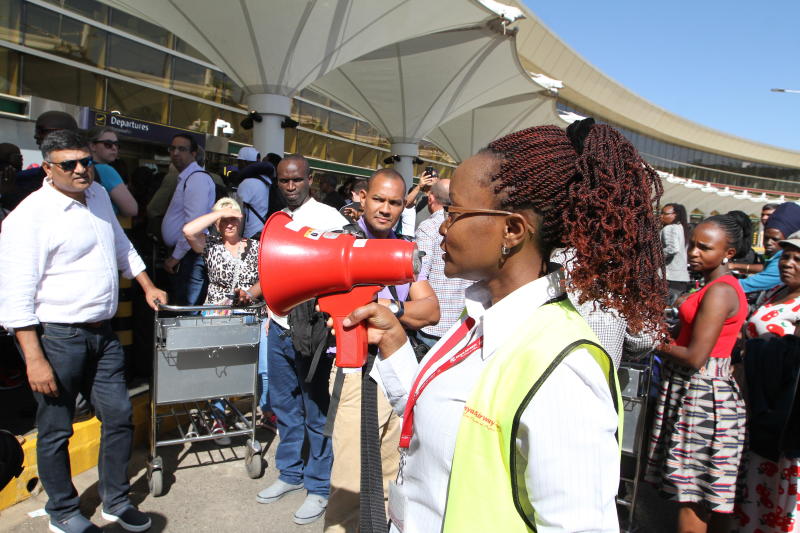×
The Standard e-Paper
Join Thousands Daily

Yesterday’s flight disruptions at the Jomo Kenyatta International Airport (JKIA) caused great inconvenience to hundreds of passengers, among them tourists and patients caught unawares by a strike called to protest the proposed takeover of the airport by struggling national airline Kenya Airways (KQ).
More than 30 flights – most of them international- were affected by the long delays and the long queues at departure and arrival bays.